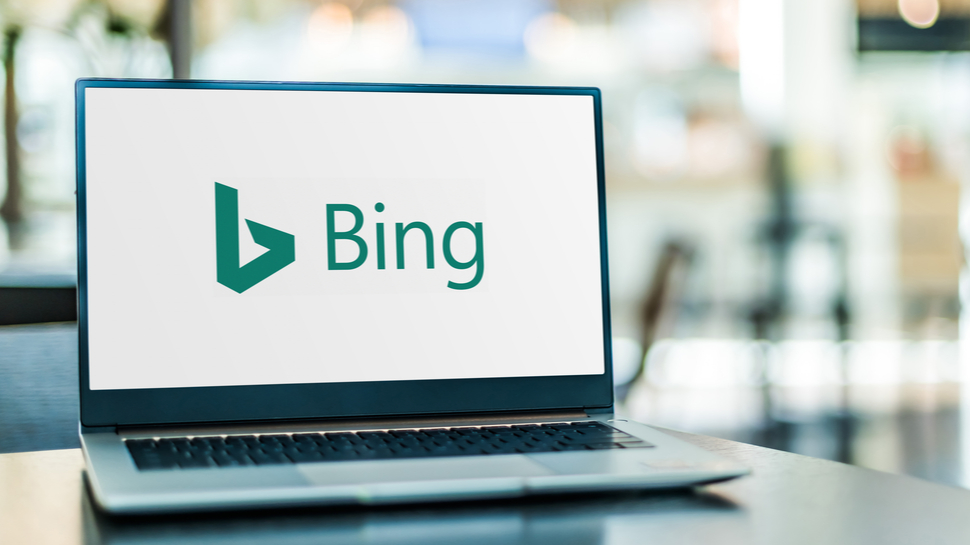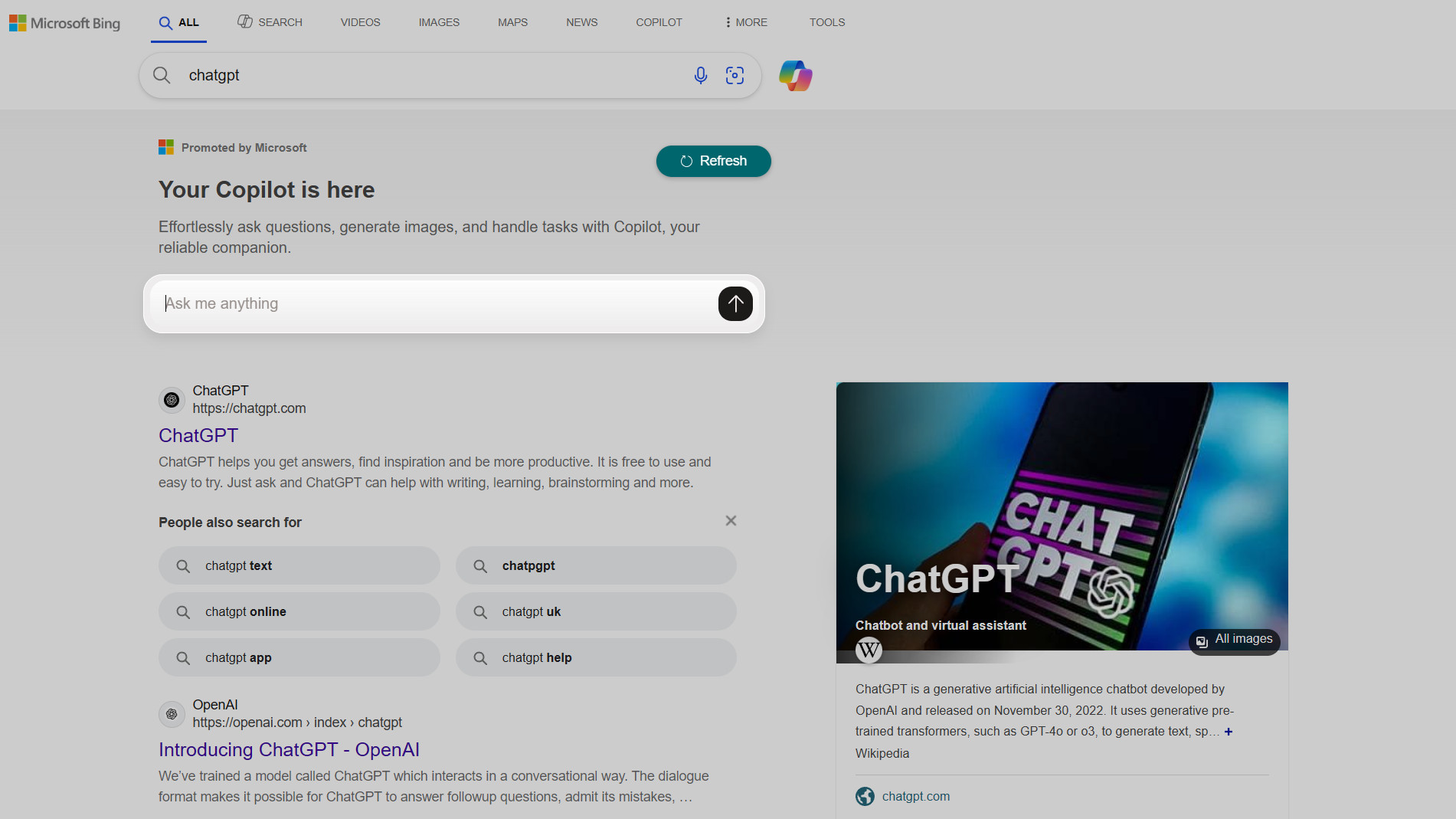Microsoft's up to its old tricks, this time pushing Copilot AI in your face when searching on Bing - and this is getting tiresome
Want ChatGPT? You don't need that, try Copilot instead...

- Microsoft has a new (and somewhat duplicitous) promotion going on
- It happens when searching for a rival AI service on Bing
- A Copilot banner appears at the top of the results, and it's easy for users to mistakenly use that instead of the AI they were really looking for
Microsoft is up to some sneaky tricks again in terms of promoting its own services, and this time it's Copilot AI, which is now being pushed on those using Bing search.
As Windows Latest reports, if you go to Bing.com and search for a major AI service that rivals Microsoft's own Copilot - meaning ChatGPT, Google's Gemini, or Claude AI - you'll get a Copilot banner popping up.
This appears right at the top of the search, announcing that 'Your Copilot is here' and offering a prompt to ask Microsoft's AI 'anything'. You can then type a query in the presented box if you want, and it'll open up the Copilot website with the results.
This behavior is implemented via the Bing search site itself, so it'll happen if you go to Bing.com in any web browser (not just Edge).

Analysis: spotlight and shade
While the Copilot banner that Bing search serves up is labelled as 'Promoted by Microsoft', the company has chosen a very small font for that particular detail, so it's easy enough to miss.
In fact, the way the search result is laid out in this scenario is quite deceptive in a few aspects. So, say you search for ChatGPT in Bing, the ChatGPT website is the top result (as you'd expect, of course), but the way the Copilot banner is perched right above it could trick you into thinking the query box is actually for ChatGPT. Some people might not realize that and then end up redirected to the Copilot website with their query, which is clearly the idea. If the Copilot banner was presented to the side, for example - out of the way - this would be much less likely to happen.
Furthermore, if you leave the tab with the Bing search for ChatGPT (or the other mentioned AI services), and then return to it, the Copilot banner is actually highlighted in bright white, with the rest of the results greyed out. The banner is effectively spotlighted - check out the above screenshot to see what I mean - so people are even more likely to be drawn to it, especially if they aren't tech-savvy and don't really look at the page properly.
Sign up for breaking news, reviews, opinion, top tech deals, and more.
All in all, this feels like a bit of unwelcome duplicity, but in truth, it's nothing new for Microsoft - or other tech giants, for that matter. Microsoft is particularly keen on prompting folks to use its Edge browser in one way or another, including if you try to download Chrome. Indeed, searching for Chrome in Bing.com results in a very similar 'Promoted by Microsoft' banner at the top of the results (and we've seen even shadier moves than this in the past).
And yes, Google pulls this sort of chicanery as well, and if you head to Google.com you'll be prompted to make use of its AI, Gemini, with a pop-up. That said, if you search for 'Copilot' on Google, you won't get Gemini inserted into the search results in the same way Microsoft does with Copilot in Bing.
At any rate, while it's very unlikely this kind of promotional nonsense will ever go away, it's disappointing to see a somewhat more blatant example from Microsoft here - particularly in the highlighting of the Copilot query box, should you flick away from the active tab, and then switch back.
You may also like...
- Chrome stretches its lead over the floundering Edge - and I'm not convinced Microsoft's big Copilot AI promises will save the browser
- Windows 11 fully streamlined in just two clicks? Talon utility promises to rip all the bloatware out of Microsoft’s OS in a hassle-free way
- Microsoft embarrasses itself with Windows 10 pop-up that hogs the desktop urging an upgrade to Windows 11 – then promptly crashes
Darren is a freelancer writing news and features for TechRadar (and occasionally T3) across a broad range of computing topics including CPUs, GPUs, various other hardware, VPNs, antivirus and more. He has written about tech for the best part of three decades, and writes books in his spare time (his debut novel - 'I Know What You Did Last Supper' - was published by Hachette UK in 2013).
You must confirm your public display name before commenting
Please logout and then login again, you will then be prompted to enter your display name.